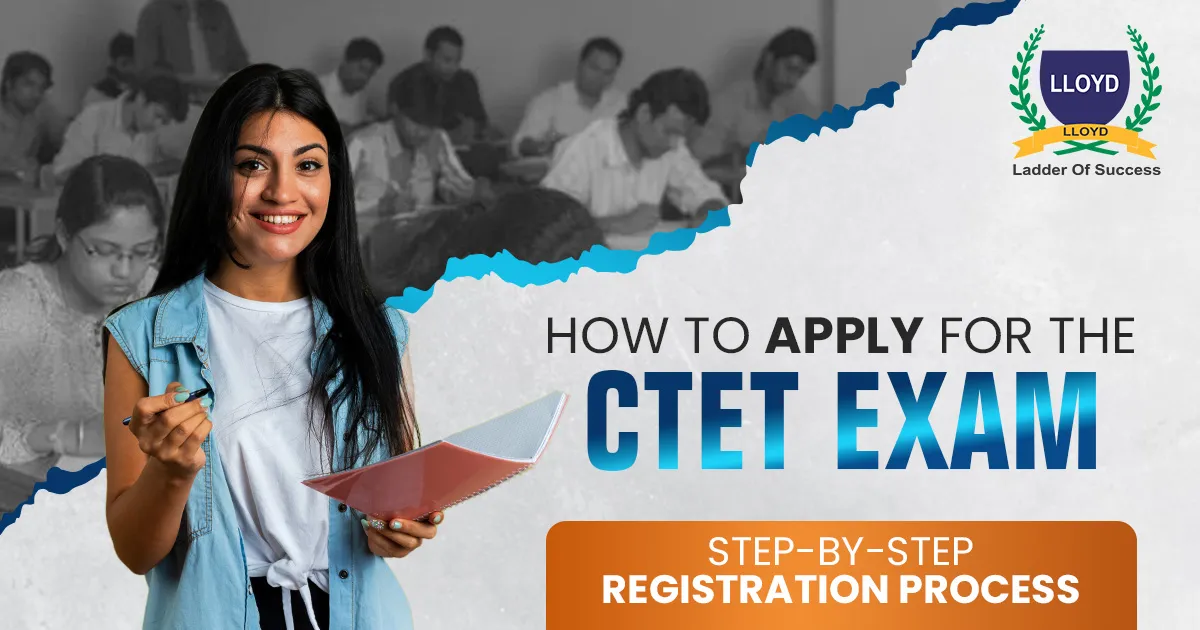
The Central Teacher Eligibility Test (CTET) is a national-level examination conducted by the Central Board of Secondary Education (CBSE) to assess candidates' eligibility for teaching positions in central government schools. Qualifying CTET is essential for aspiring teachers aiming to secure positions in Kendriya Vidyalayas, Navodaya Vidyalayas, and schools managed by Union Territories. Increasingly, many private schools also consider CTET scores during recruitment.
This exam is also a vital part of preparing for government teaching jobs. Candidates who are serious about building a career in education, especially those pursuing a B.Ed., should understand the importance of CTET certification.
Before starting the CTET application process, ensure you have the following documents and details ready:
Having these documents ready will make the application process smoother and help you avoid last-minute delays.
Before applying, it's crucial to understand the CTET eligibility criteria and syllabus. The exam comprises two papers:
Candidates can choose to appear for either or both papers based on their qualifications and career goals.
The CTET registration process is entirely online and conducted through the official website. Follow these steps:
The application fee varies by category and number of papers:
|
Category |
Paper I or II |
Both Papers |
|
General/OBC (NCL) |
₹1,000 |
₹1,200 |
|
SC/ST/Differently Abled |
₹500 |
₹600 |
Payment Modes:
Always keep your transaction ID or receipt safe for future reference.
While applying for CTET, candidates often make errors that can lead to application rejection. Here are some common mistakes to avoid:
By being meticulous during the application process, you can ensure a smooth registration experience.
Once you've applied, checking your application status is crucial:
If there are any issues, the website will guide you on how to fix them.
Preparing for the Central Teacher Eligibility Test (CTET) becomes more strategic when you also understand the larger landscape of Teacher Eligibility Tests (TET) conducted across India. While CTET is a national-level exam conducted by the Central Board of Secondary Education (CBSE), several states conduct their own TETs to recruit teachers for government-run schools within their jurisdiction.
In addition to CTET, many Indian states have their own TET exams. These state-level tests are designed to assess the teaching aptitude and subject knowledge of aspiring teachers who wish to work in public schools under the respective state education boards. Must Check List of TET exams. Each of these exams shares a similar goal: to maintain teaching quality by ensuring candidates possess the necessary pedagogical knowledge and teaching skills.
Among all these, CTET is widely regarded as the gold standard for teacher eligibility in India. It not only sets a high benchmark for state-level TETs but also offers a comprehensive foundation in child pedagogy, classroom management, and subject mastery. As a result, even candidates preparing for their respective state TETs often begin by studying the CTET syllabus and pattern.
By qualifying CTET, candidates also gain an edge in state-level exams, since the syllabus overlaps significantly and builds a stronger base in both content and strategy. Moreover, some states even recognize CTET scores for teacher recruitment in government-aided or private schools.
If you're currently pursuing your Bachelor of Education (B.Ed.) or planning to do so, enrolling in one of the Top Private B.Ed. Colleges in Delhi NCR can be a strategic move. Many reputed institutions offer dedicated CTET coaching, practice tests, expert guidance, and exclusive study materials to help students crack the exam on the first attempt.
These colleges not only prepare you for CTET but also equip you with the skills and resources needed for various TETs in India, ensuring you are job-ready upon graduation.
The CTET is a vital step for anyone pursuing a teaching career in India. Whether you're planning for central or state-level positions, qualifying CTET enhances your credibility and employability. By following the registration process diligently and preparing well, you can unlock opportunities for government jobs after B.Ed and build a successful teaching career.